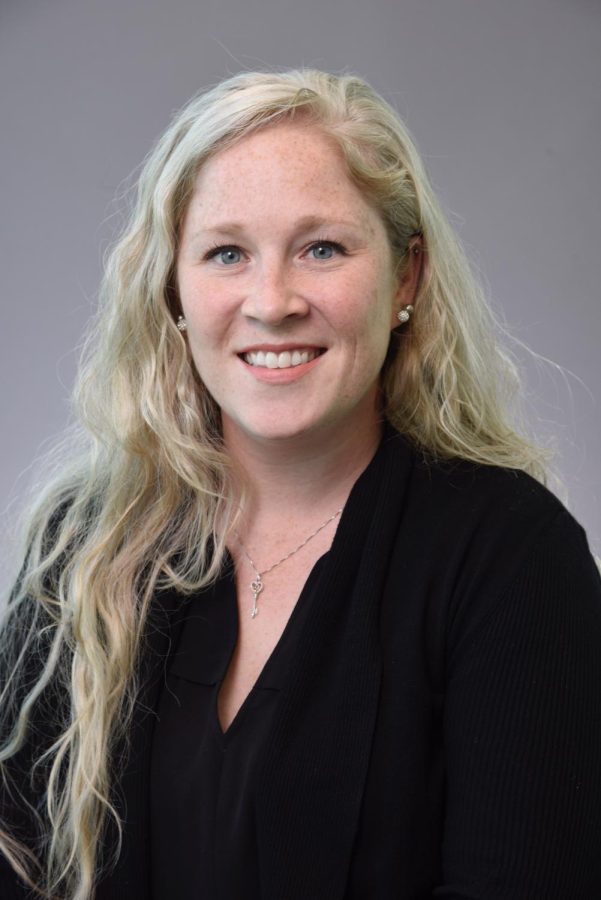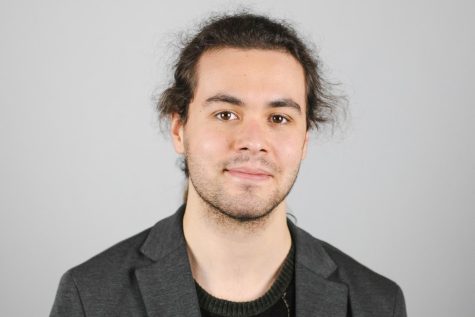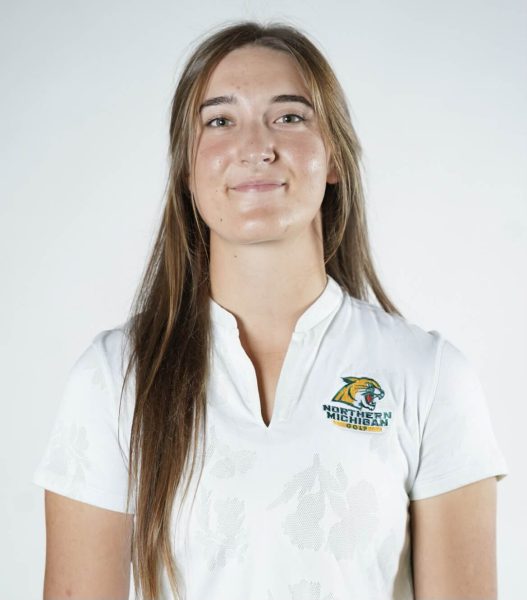Alumni Profile – Justine Pinskey credits McNair program for science field success
Photo courtesy of Justine Pinskey
PROFILE – Justine Pinskey, now employed as a science writer, used to run tests for research projects through the McNair Scholars program. Pinskey enrolled at Northern in 2005 and continued here for graduate school.
October 5, 2022
Justine Pinskey started her freshman year as a first generation student at Northern in 2005. Fast forward 17 years, and she now works remotely as a Senior science writer at the University of Massachusetts Chan Medical School, assisting scientists in making their findings easier to read for their audiences.
The journey was not an easy one, and she credits Northern as a place to help build her confidence in working independently.
“My experience at Northern really shaped the way that I thought about my future and my career,” Pinskey said. “So I was able to get involved with some undergraduate research, which really opened my eyes to a whole new career path that I didn’t really know existed.”
She initially thought about choosing diagnostic genetics as her field of study, but after working with Dr. Robert Winn of the Upper Michigan Brain Tumor Center, she saw a career field where she could work on independent studies and biological research, a far cry from “running test samples for patients.”
Pinskey cites the McNair Scholars Program as a key factor in getting her to pursue her career. Having already discovered the work in independent research, she still didn’t know how to turn that into a future. She said the program gave her additional research experience and helped her apply to a PhD program.
“At Northern, you’re able to develop your own projects, you’re able to actually design your own experiments and then go do them,” Pinskey said. “[You] can’t do that many places.”
Studying in a PhD program turned out to be no easy task. Pinskey noted that cells follow their own schedule, and as a scientist, you have to work around that, leading to working long hours, weekends, and evenings.
Then for her postdoctoral research, she completed a particular research project involving Cryo Electron Tomography, requiring a $12 million dollar microscope facility that visualized machines inside cells. For that, she had to work 24 hour shifts, sleep in the morning, then do it all again.
On her new career as a science writer, Pinskey said the switch away from research-based lab work was tough at first.
“One of the things that I loved most about doing bench science is that if I found something cool,” Pinskey said “Even if I was on vacation and I scooped up some water from the ocean, I could just go into the lab and look at it under the microscope.”
Pinskey further added that working as a science writer has provided a better work/life balance.
“I have a three year old son,” Pinskey said. “If I need to leave to pick up my son, I can put a little time in Extra in the evenings. It’s very flexible and a lot better for me.”
On advice to students seeking a career in science, Pinskey said simply trying new things out and volunteering are great ways to learn new skills and find out what you do and don’t like.
“At Northern, you are really fortunate to have lots of those opportunities, and to be able to have the ability to just go talk to your professors,” Pinskey said. “You are in smaller classes versus classes of 300 students, you can get to know your professors, you can talk to them about the research that they do in the summers, things like that and get involved.”



























